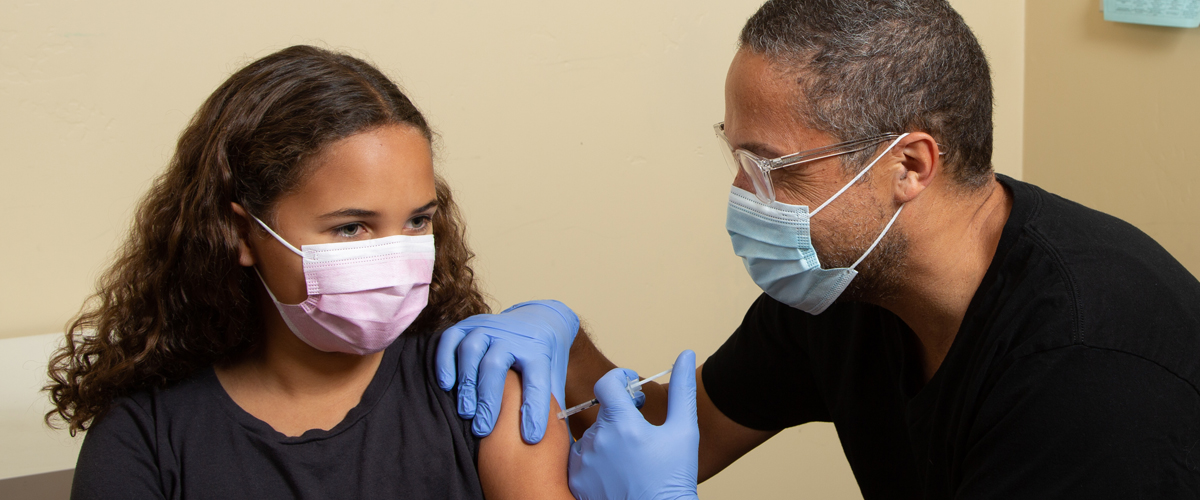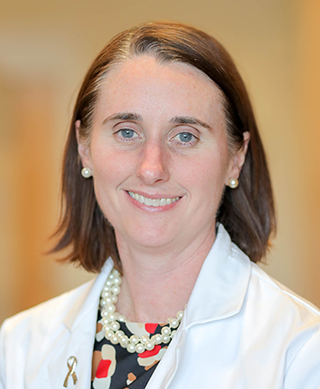COVID-19 Vaccine and Kids: What Parents Should Know
The pediatrician-in-chief at NewYork-Presbyterian Komansky Children’s Hospital shares what parents need to know about getting their kids vaccinated.

With the COVID-19 vaccine and new boosters available for children as young as age 5, Health Matters spoke with Dr. Sallie Permar, pediatrician-in-chief at NewYork-Presbyterian Komansky Children’s Hospital and chair of the Department of Pediatrics at Weill Cornell Medicine, on what parents need to know the COVID-19 shots and their kids.

Dr. Sallie Permar
Health Matters: Why is it important for kids to get the COVID-19 vaccine?
Dr. Permar: During last year’s Omicron wave, we saw an increase in the number of kids being hospitalized with COVID. The symptoms are serious enough to be admitted to the hospital, which is an indication that this is not just a disease of adults. The vaccine is so much safer than getting the virus itself. Giving your child the vaccine keeps them safer than letting them get infected with this virus without any immunity from a vaccine.
Should parents get their kids boosted?
Yes, if your child has completed their primary series and it has been at least two months since their last COVID-19 shot, they should get the new booster that targets Omicron. Even if they already got the previous booster, they should get it. If they had a recent infection, they could wait up to three months before getting it. The new booster is safe. It will better protect them going into the winter and help ensure fewer disruptions for our kids.
Are there any underlying conditions where kids shouldn’t be vaccinated?
Most people — including children — with underlying medical conditions can receive the vaccine. This includes things like weakened immune systems and autoimmune diseases.
In cases of severe allergic reactions — like anaphylaxis — after the first dose of the COVID-19 vaccine, the CDC states that you should not get the second dose. These reactions are very rare and can be treated during the observation period after the vaccine. An ingredient of the mRNA vaccines that has been implicated in the very rare severe allergic reactions is a common component of many pharmaceuticals called polyethylene glycol, the main ingredient of the common constipation treatment MiraLAX. If you’re unsure about a vaccine for your child, speak with your doctor about your concerns.
We now have the opportunity to give kids their lives back through the gift of vaccine immunity.
Dr. Sallie Permar
What side effects are children experiencing from the vaccine?
The side effects of the Pfizer/BioNTech vaccine in 5- to 15-year-olds are no worse than those of adults. Reactions include soreness in the arm where you got your shot, fatigue, muscle pain, and sometimes a fever. They generally resolve after a day. This indicates the immune system is responding to the vaccine. It is a small price for going back to hanging out with friends without fear of bringing a deadly virus home.
How can parents talk to children about the vaccine and its side effects?
Be honest with your children. Explain to them that while the shot may pinch or sting for a brief moment, it won’t hurt for long, and it helps protect them from getting sick. Remind them that they may feel some mild symptoms for a short time after, but those will go away too, and it’s a sign that their immune system is working. Pain relievers like Tylenol or ibuprofen can be used if needed to help them through it. Help them to see that vaccines are a good thing and they keep us safe.
Could the vaccine cause future infertility in children?
This is a false claim, as there is no data that shows the COVID-19 vaccine can cause infertility, or any biological reason why we would suspect that it would. Moreover, the mRNA vaccines are short-lived in your body and do not integrate with your DNA.
What would you say to parents who are still anxious about their kids receiving a COVID-19 vaccine?
I would tell them that the benefits of vaccination far outweigh the risks of a COVID-19 infection. As pediatricians, we have cared for children who required lifesaving measures due to the infection, and some who didn’t make it. We have witnessed the rise of a new postinfectious inflammatory disease, multisystem inflammatory syndrome in children (MIS-C), which primarily affects children and can result in long-term cardiovascular disease and even death.
Those who did not become sick still stand to be its most impacted long-term victims. They lost family members to COVID, they lost touch with their friends, they only saw teachers on screens, and their anxiety and depression grew to epidemic levels. We now have the opportunity to give them their lives back through the gift of vaccine immunity.
Sallie Permar, M.D., Ph.D., helms the pediatrics enterprise at Weill Cornell Medicine and NewYork-Presbyterian/Komansky Children’s Hospital. She is also the Nancy C. Paduano Professor of Pediatrics at Weill Cornell Medicine. Board-certified in pediatrics and pediatric infectious disease, Dr. Permar has been honored with several prestigious awards, including the 2014 Young Investigator Award and the 2020 E. Mead Johnson Award from the Society for Pediatric Research, the Presidential Early Career Award in Science and Engineering, and most recently the Gale and Ira Drukier Prize in Children’s Health Research from Weill Cornell Medicine.
